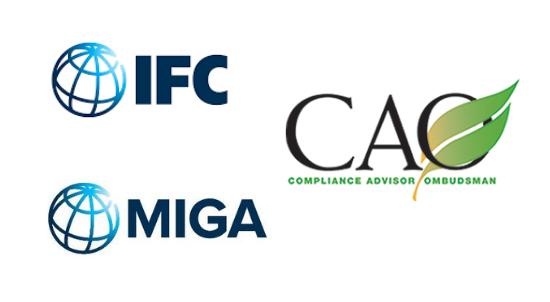New CAO Policy Comes Into Effect

The International Finance Corporation’s and Multilateral Investment Guarantee Agency’s accountability mechanism, the Compliance Advisor Ombudsman, has a new policy that governs its process for addressing complaints from communities alleging harms caused by IFC and MIGA projects. The new policy is the first major outcome of a nearly year-long process to implement recommendations that IFC/MIGA received on how to improve environmental and social accountability.
A Snapshot of Positive Additions to the New Policy:
- The head of the CAO now reports to the IFC/MIGA Boards instead of the World Bank Group President.
- The policy enshrines a process to select and safeguard the independence of the CAO Director General.
- The policy expressly references the CAO’s role in facilitating access to remedy and recommending remedial actions, as well as IFC/MIGA’s obligation to support and engage in the CAO process.
- The policy clarifies eligibility criteria for complaints about financial intermediary projects or supply chain activities.
- In certain circumstances, complaints can now be submitted up to 15 months after IFC/MIGA has exited a project.
- The policy enshrines specific opportunities for complainants to comment on and be consulted on the case process.
- The policy envisions the option for IFC/MIGA to participate in a dispute resolution process.
A Snapshot of Ways the Policy Falls Short of Good Practice:
- In limited technical circumstances, IFC/MIGA Management can object to the CAO’s decision to conduct a compliance investigation and seek for the Board to undertake an assessment of that decision.
- Complaints about projects not yet approved by the Board are ineligible.
- Even after a complaint is found eligible, the policy does not require the CAO to post the complaint on its registry until the conclusion of the assessment phase.
Next Steps for IFC/MIGA
Notably, developing a new policy for the CAO is only one of the reforms that IFC/MIGA were advised to undertake. Many of the reform recommendations are aimed at what the financial institutions, not their accountability mechanism, need to improve to adequately safeguard environmental and social rights and respond when harms occur. This makes sense: while an effective accountability process administered by the CAO can identify noncompliance and facilitate resolution, it is ultimately the responsibility of the IFC and MIGA to fix the problems identified.
The most important task ahead for IFC/MIGA is financing remedy. As the new policy states, the CAO “facilitates access to remedy,” but IFC/MIGA ultimately need to provide it. IFC/MIGA are still assessing how to implement reform recommendations on enabling remedy. To meet their environmental and social obligations, communities who bear the most risk when a project goes off-course need IFC/MIGA to do the following: (1) commit to financing remedy when IFC/MIGA’s noncompliance with its own policies causes harm going forward; and (2) provide remedy now for the communities whose harms have already been independently verified by the CAO. And as the IFC/MIGA design the implementation of a remedial framework, they should repeat the public consultation process that they and the CAO undertook to develop the CAO’s new policy.
Further Analysis Forthcoming
In the coming weeks, we will benchmark the new CAO policy alongside other accountability mechanism policies in the Accountability Console.

